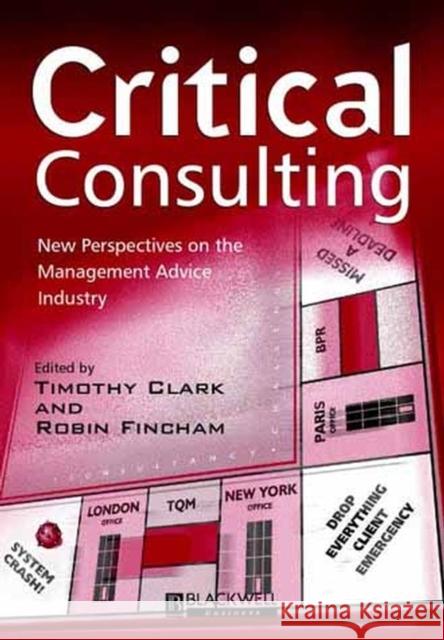Critical Consulting: New Perspectives on the Management Advice Industry » książka
topmenu
Critical Consulting: New Perspectives on the Management Advice Industry
ISBN-13: 9780631218203 / Angielski / Miękka / 2001 / 296 str.
The critical analysis presented here evaluates what management consultants offer as well as analysing the emergence of their industry as a contemporary social phenomenon.
- Presents the latest research from the most influential researchers in the field.
- Takes an inter-disciplinary approach, chapters analyse critical theory, organizational behaviour, sociology, psychology, actor-network theory and narrative analysis.
- Provides the first critical evaluation of the different actors and activities that comprise the management advice sector.











